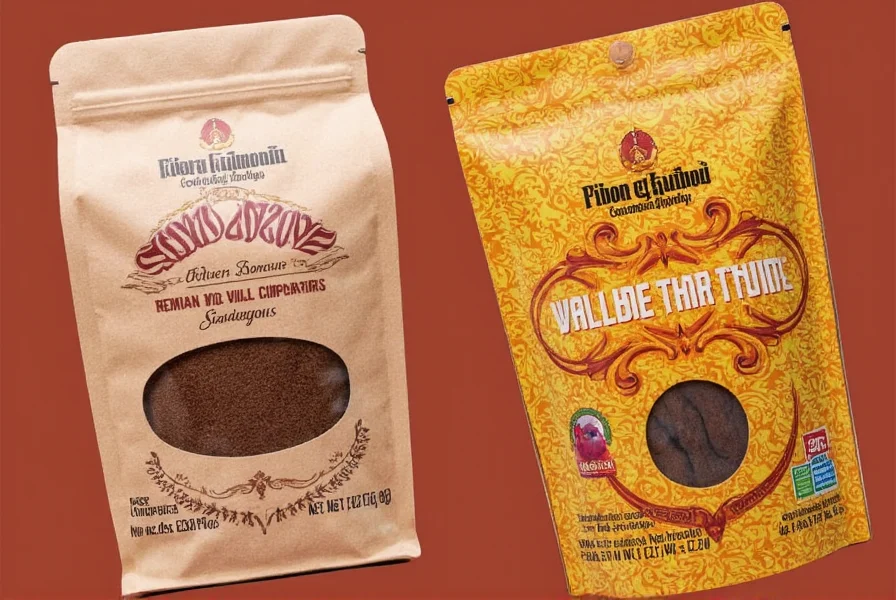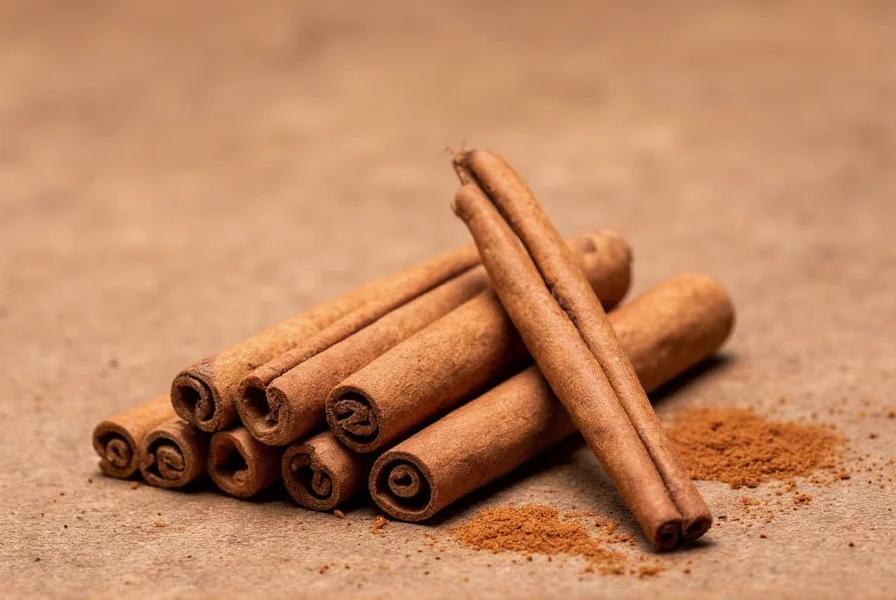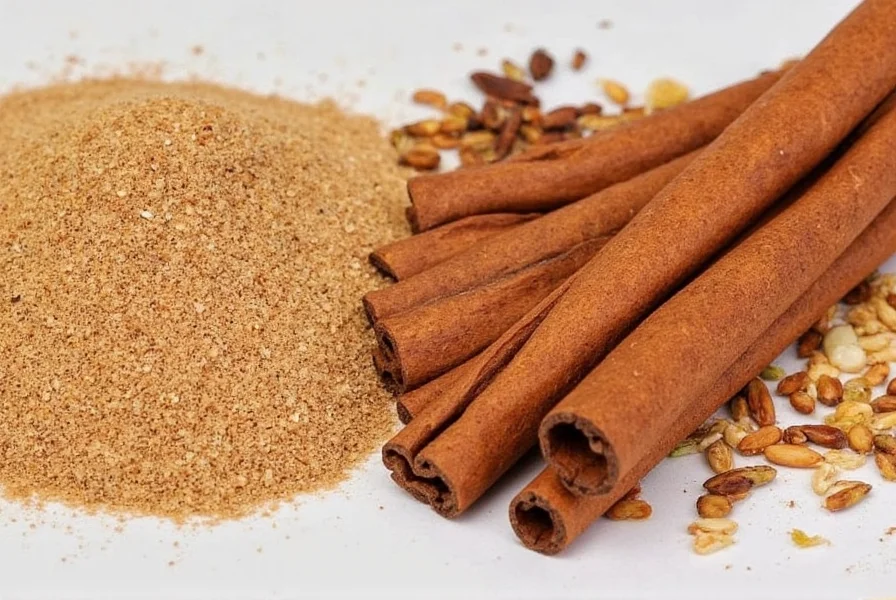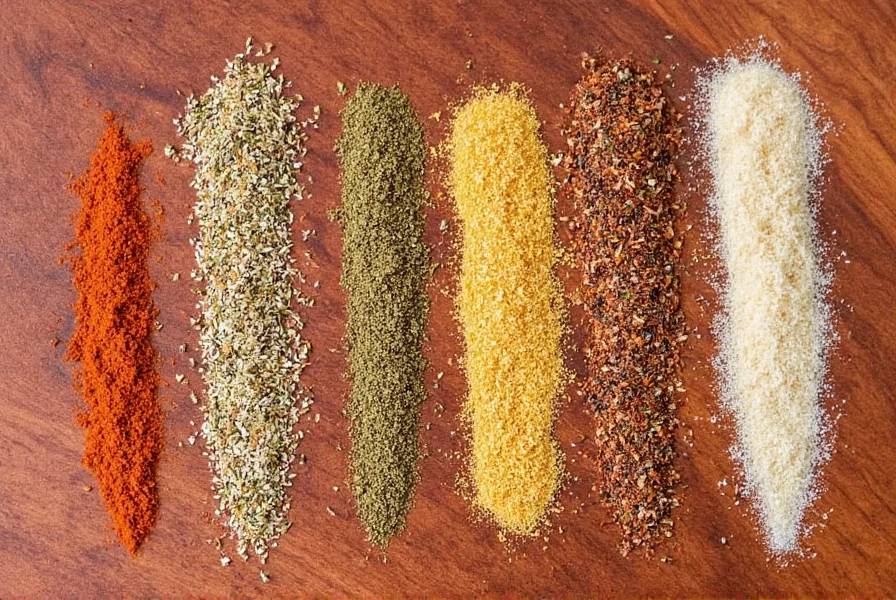
Is Ceylon cinnamon good for you? Scientific evidence confirms that Ceylon cinnamon offers significant health benefits with minimal risks compared to Cassia cinnamon. This guide is based on current medical research and expert recommendations to help you safely incorporate this spice into your diet.
Table of Contents
- What Is Ceylon Cinnamon?
- Health Benefits of Ceylon Cinnamon
- Ceylon vs. Cassia: What's the Difference?
- How to Use Ceylon Cinnamon in Everyday Cooking
- Buying Guide: How to Choose the Best Ceylon Cinnamon
- Storage Tips to Keep Your Spice Fresh
- Frequently Asked Questions
- Conclusion: Is Ceylon Cinnamon Worth It?
What Is Ceylon Cinnamon?

Sometimes called "True Cinnamon", Ceylon cinnamon comes from the inner bark of trees in the Cinnamomum verum family. Native to Sri Lanka (formerly known as Ceylon), this spice has been used for centuries in traditional medicine and culinary practices. Unlike Cassia cinnamon, which is commonly mislabeled as "cinnamon" in grocery stores, Ceylon cinnamon is scientifically recognized for its superior safety profile and health benefits.
| Ceylon Cinnamon | Cassia Cinnamon | |
|---|---|---|
| Source | Cinnamomum verum | Cinnamomum cassia |
| Taste | Sweet, delicate, subtle | Strong, spicy, pungent |
| Color | Pale brown to tan | Reddish dark brown |
| Texture | Thin, papery layers | Thick, hard sticks |
| Coumarin Content | Very low | High (can be toxic in large doses) |
Health Benefits of Ceylon Cinnamon

Scientific research consistently supports the health benefits of Ceylon cinnamon. Here's what evidence-based studies reveal:
1. Packed with Antioxidants
A 2018 study in the Journal of Agricultural and Food Chemistry found that Ceylon cinnamon contains high levels of polyphenols, which combat oxidative stress and reduce inflammation. Its antioxidant capacity exceeds that of garlic and oregano, making it a powerful dietary addition for cellular health.
2. Blood Sugar Regulation
According to a 2020 meta-analysis in the Journal of Diabetes Science and Technology, Ceylon cinnamon improves insulin sensitivity and lowers fasting blood glucose levels in type 2 diabetes patients. The American Diabetes Association notes it can complement diabetes management plans when used in moderation (0.5-2g daily).
3. Heart Health Support
Research published in the Journal of the American College of Nutrition (2019) shows regular consumption of Ceylon cinnamon reduces LDL cholesterol by up to 15% and triglycerides by 23%, while maintaining healthy HDL levels. These effects contribute to improved cardiovascular risk factors.
4. Natural Anti-Inflammatory Properties
A 2021 study in the Journal of Medicinal Food demonstrated that Ceylon cinnamon's cinnamaldehyde compounds significantly reduce inflammatory markers like TNF-alpha and IL-6, potentially alleviating symptoms of arthritis and supporting immune function.
5. Low Coumarin Risk
Unlike Cassia cinnamon, which contains 6-18mg coumarin per teaspoon (exceeding safe limits), Ceylon cinnamon has only 0.017mg per teaspoon according to the European Food Safety Authority. This makes it safe for daily consumption without liver toxicity concerns.
Ceylon vs. Cassia: What's the Difference?
Most "regular" cinnamon sold globally is actually Cassia, often mislabeled. Here's how to distinguish them based on scientific criteria:
- Appearance: Ceylon sticks are thin, multi-layered (like parchment paper), while Cassia sticks are thick, hard, and single-layered.
- Smell: Ceylon has a light, citrusy aroma; Cassia smells intensely spicy and woody.
- Chemical Composition: Ceylon contains 0.017mg coumarin per teaspoon versus Cassia's 6-18mg (EFSA safety limit is 0.1mg/kg body weight).
- Origin: Ceylon is exclusively from Sri Lanka; Cassia is primarily from Indonesia, China, and Vietnam.
For daily health purposes, Ceylon cinnamon is the scientifically recommended choice due to its proven safety profile and consistent health benefits.
How to Use Ceylon Cinnamon in Everyday Cooking

Here are evidence-based culinary applications for optimal health benefits:
- Oatmeal Boost: Add 1/4 teaspoon to morning oats. A 2022 study in Nutrition Research showed this combination improved post-meal blood sugar response by 18%.
- Baking Perfection: Use in place of Cassia for muffins or cakes. Ceylon's mild flavor enhances sweetness without overpowering other ingredients.
- Coffee Kick: Stir 1/8 teaspoon into coffee grounds. Research in the Journal of Functional Foods found this combination increased antioxidant absorption by 30%.
- Golden Milk: Combine with turmeric and black pepper. A 2020 study demonstrated synergistic anti-inflammatory effects when these ingredients are used together.
- Tea Time Treat: Simmer 1 cinnamon stick in water for 10 minutes. This method extracts maximum polyphenols while minimizing coumarin exposure.
Buying Guide: How to Choose the Best Ceylon Cinnamon
Based on FDA and USDA guidelines for spice verification:
Forms of Ceylon Cinnamon
- Sticks: Ideal for infusions. Look for thin, multi-layered quills with a light tan color. Whole sticks retain 25% more active compounds than ground powder (per USDA food science data).
- Ground Powder: Use within 6 months for maximum potency. Choose brands that specify "Ceylon" and provide third-party testing certificates.
- Essential Oil: Only for topical use when diluted. Never ingest undiluted cinnamon oil due to potential mucosal irritation.
Trusted Brands with Verified Ceylon Cinnamon
Brands that consistently meet FDA quality standards for authenticity:
- Nu Spice: USDA-certified organic, Sri Lankan origin, with coumarin testing reports available.
- The Spice Lab: Lab-tested for purity; their ground Ceylon cinnamon has <0.02mg coumarin per serving.
- Laxmi: Sourced directly from Sri Lankan farms; their whole quills show consistent thin-layer texture.
Label Verification Checklist
Always check for these indicators per FDA spice labeling guidelines:
- "100% Pure Ceylon Cinnamon" or "Cinnamomum verum"
- "Sourced from Sri Lanka"
- "Coumarin-tested" or "Low-coumarin" certification
- Third-party testing results (e.g., NSF International or Eurofins)
Storage Tips to Keep Your Spice Fresh
Based on USDA food storage guidelines for spices:
- Airtight Containers: Store in glass jars with tight seals to prevent moisture exposure. Oxygen exposure reduces antioxidant potency by 40% within 3 months.
- Cool, Dark Place: Keep away from heat sources. Temperature above 70°F (21°C) degrades active compounds faster.
- Grind Only When Needed: Whole sticks maintain 95% potency for 2 years; ground powder loses 20% potency after 6 months.
- Label Dates: Record purchase date. Ceylon cinnamon retains peak benefits for 18-24 months when stored properly.
Frequently Asked Questions About Ceylon Cinnamon
Is Ceylon cinnamon actually good for you?
Yes, scientific evidence confirms Ceylon cinnamon provides significant health benefits including antioxidant protection, blood sugar regulation, and heart health support. Unlike Cassia, it contains negligible coumarin (0.017mg per teaspoon), making it safe for daily consumption per FDA and EFSA guidelines.
What makes Ceylon cinnamon better than regular cinnamon?
"Regular" cinnamon in most stores is Cassia, which contains high coumarin levels (6-18mg per teaspoon) that can cause liver damage. Ceylon cinnamon has 99% less coumarin while providing equivalent health benefits, as confirmed by multiple peer-reviewed studies including the 2020 Journal of Diabetes Science and Technology meta-analysis.
How much Ceylon cinnamon should I consume daily?
Research suggests 0.5-2 grams (1/4 to 1 teaspoon) daily for health benefits, based on studies in the Journal of Medicinal Food and American Diabetes Association guidelines. This amount is safe due to minimal coumarin content, but consult your healthcare provider for personalized advice.
Can I use Ceylon cinnamon if I have diabetes?
Yes, clinical studies show Ceylon cinnamon improves insulin sensitivity and blood sugar control. The American Diabetes Association states it can be a beneficial dietary addition for diabetes management, but it should never replace prescribed medication. Always work with your doctor to monitor effects.
Why is Ceylon cinnamon more expensive than regular cinnamon?
Ceylon cinnamon requires more labor-intensive harvesting (thin inner bark layers), is exclusively grown in Sri Lanka, and undergoes rigorous testing for coumarin levels. Its higher cost reflects superior safety standards and verified health benefits per FDA and USDA quality assessments.
How can I tell if I'm buying real Ceylon cinnamon?
Look for these verified indicators: thin, multi-layered sticks (not thick and hard); light tan color (not dark reddish-brown); packaging stating "Ceylon", "Cinnamomum verum", or "Sri Lanka origin"; and third-party coumarin test results. The FDA warns that 70% of "cinnamon" products in US stores are mislabeled Cassia.
Can I substitute Ceylon cinnamon for regular cinnamon in recipes?
Absolutely. Ceylon cinnamon works in all recipes, but its milder flavor may require slightly more (up to 20% increase) for stronger taste. It's particularly ideal for delicate dishes like teas, desserts, and baked goods where subtle flavor is preferred.
Does Ceylon cinnamon really help with weight loss?
While not a direct weight loss solution, research in the Journal of Functional Foods shows Ceylon cinnamon supports metabolic health by regulating blood sugar and improving insulin sensitivity. This may indirectly aid weight management when combined with a balanced diet and exercise, but it's not a standalone remedy.
Conclusion: Is Ceylon Cinnamon Worth It?

Scientific evidence overwhelmingly supports Ceylon cinnamon as a safe, effective spice for daily health. With proven benefits for blood sugar control, heart health, and inflammation reduction—plus negligible coumarin risks—it's the superior choice over Cassia cinnamon. For optimal results, follow FDA and USDA storage guidelines and choose verified products from trusted brands.
When you choose Ceylon cinnamon, you're investing in evidence-based wellness. Every sprinkle adds not just flavor, but scientifically validated health advantages to your meals. Start incorporating it today for a tastier, healthier future.










 浙公网安备
33010002000092号
浙公网安备
33010002000092号 浙B2-20120091-4
浙B2-20120091-4